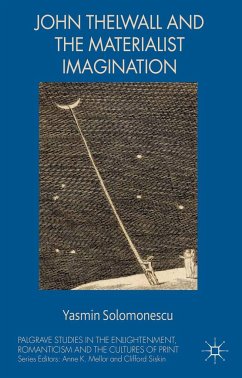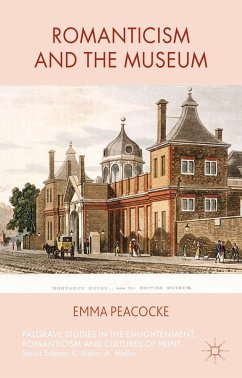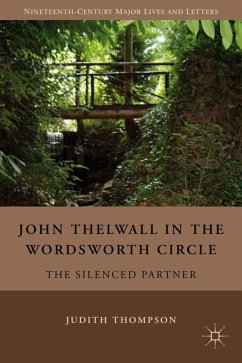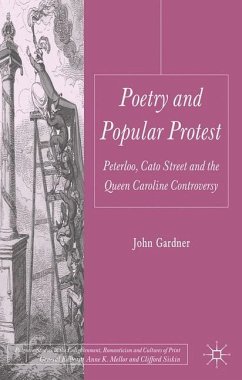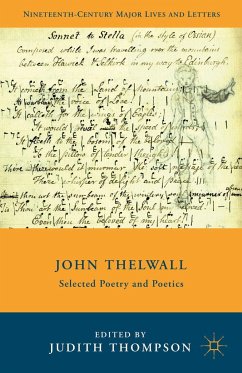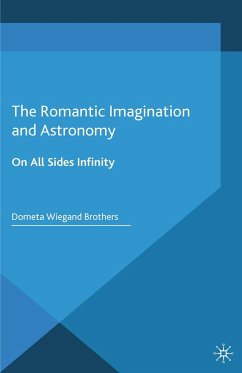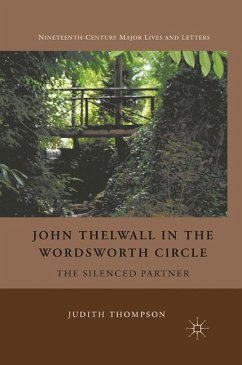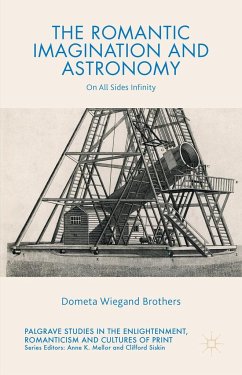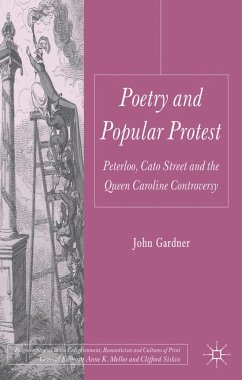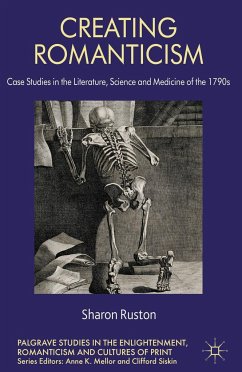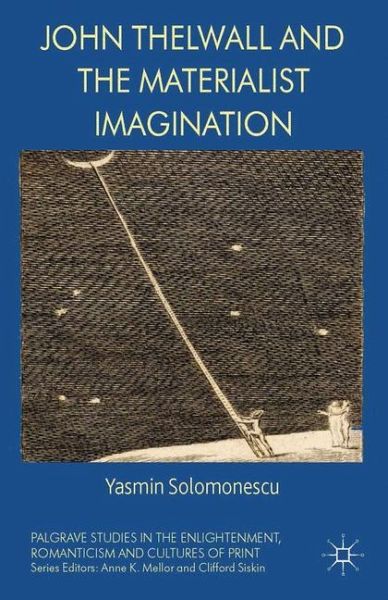
Yasmin Solomonescu
Broschiertes Buch
John Thelwall and the Materialist Imagination
Versandkostenfrei!
Versandfertig in 6-10 Tagen
Weitere Ausgaben:

PAYBACK Punkte
19 °P sammeln!





John Thelwall and the Materialist Imagination reassesses Thelwall's eclectic body of work from the perspective of his heterodox materialist arguments about the imagination, political reform, and the principle of life itself, and his contributions to Romantic-era science.
Yasmin Solomonescu is an Assistant Professor in the Department of English at the University of Notre Dame, USA. Previously she held a Social Sciences and Humanities Research Council of Canada Postdoctoral Fellowship at York University, Toronto. In addition to publishing articles on Thelwall and Romantic-era literature, she has edited John Thelwall: Critical Reassessments (2011) and, with Michael Scrivener and Judith Thompson, Thelwall's The Daughter of Adoption (2013).
Produktdetails
- Palgrave Studies in the Enlightenment, Romanticism and the Cultures of Print
- Verlag: Palgrave Macmillan / Palgrave Macmillan UK / Springer Palgrave Macmillan
- Artikelnr. des Verlages: 978-1-349-49071-4
- 1st ed. 2014
- Seitenzahl: 240
- Erscheinungstermin: 1. Januar 2014
- Englisch
- Abmessung: 216mm x 140mm x 14mm
- Gewicht: 308g
- ISBN-13: 9781349490714
- ISBN-10: 1349490717
- Artikelnr.: 45079676
Herstellerkennzeichnung
Macmillan Education
Tiergartenstr. 17
69121 Heidelberg
ProductSafety@springernature.com
"In this book, Yasmin Solomonescu makes a dynamic and integrative contribution to the rapidly expanding field of Thelwall Studies and adds a vital new voice to contemporary critical conversations about nineteenth-century aesthetics, politics, and sciences of mind. ... Solomonescu's energetic, accessible style reflects the 'practical fluency' that Thelwall practised and promoted. ... this book marks a vigorous start to Solomonescu's career, breathing new life into both Thelwall's oeuvre and his contribution to Romantic literature." (Judith Thompson, Review 19, nbol-19.org, May, 2016)
"John Thelwall and the Materialist Imagination covers the range of Thelwall's writing, including the novel Daughter of Adoption and the manuscript of poetry recently discovered in Derby. It includes an impressive account of the import of Thelwall's elocutionarywritings to his other work. The presentation of John Thelwall as the 'Champion of Materialism' for his period is the key contribution of this monograph. Not only does it develop recent interest in Thelwall in his own right, but it provides a new perspective on the understanding of his role in the period's materialist thinking. In this regard, Solomonescu's work will speak to medical historians and historians of science as well as scholars of the Romantic period." Jon Mee, University of York, UK
"John Thelwall and the Materialist Imagination covers the range of Thelwall's writing, including the novel Daughter of Adoption and the manuscript of poetry recently discovered in Derby. It includes an impressive account of the import of Thelwall's elocutionarywritings to his other work. The presentation of John Thelwall as the 'Champion of Materialism' for his period is the key contribution of this monograph. Not only does it develop recent interest in Thelwall in his own right, but it provides a new perspective on the understanding of his role in the period's materialist thinking. In this regard, Solomonescu's work will speak to medical historians and historians of science as well as scholars of the Romantic period." Jon Mee, University of York, UK
Für dieses Produkt wurde noch keine Bewertung abgegeben. Wir würden uns sehr freuen, wenn du die erste Bewertung schreibst!
Eine Bewertung schreiben
Eine Bewertung schreiben
Andere Kunden interessierten sich für


